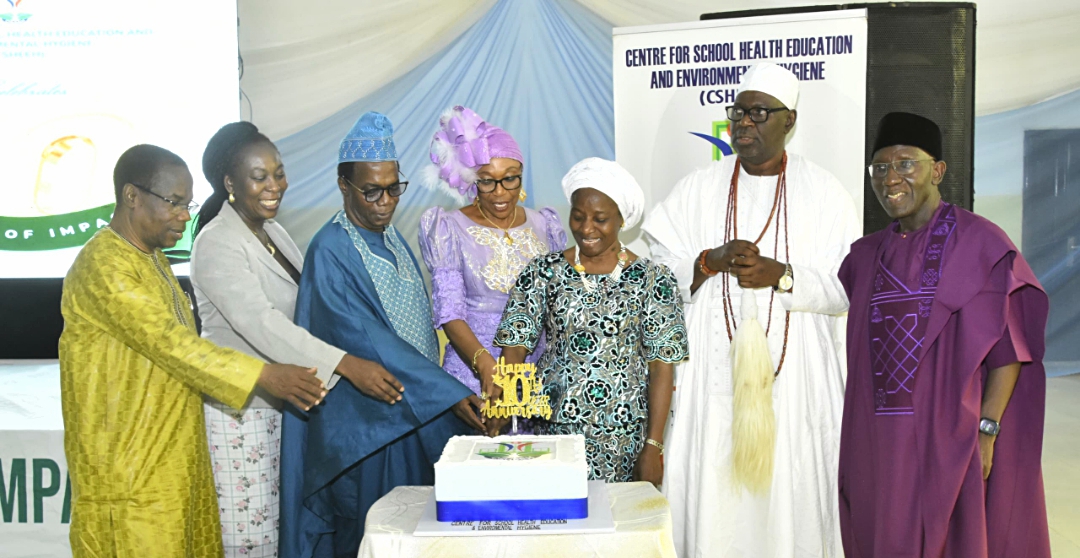Centre urges support for less privileged communities
By Angela Atabo
The Centre for School Health, Education and Environmental Hygiene (CSHEEH), an Abuja-based non-governmental organisation, has called for more support to enable it meet the needs of underprivileged schools and communities.
The Executive Director and Founder, CSHEEH, Dr Folasade Olusola Momoh made the call on Tuesday in Abuja at the 10th anniversary celebration of the NGO.
She noted that the support would enable the organisation to continue to champion personal hygiene, school health education, and environmental sanitation across Nigeria.
Reflecting on the organisation’s journey, Momoh described it as both exciting and challenging, noting that funding had remained a significant hurdle in achieving it’s goals.
“It’s been quite exciting and at the same time challenging. As an NGO, we desire to do so much, but because of the paucity of grants, we’ve not been able to start accessing grants, even though we’ve made a few attempts.
“So most of the things we do is through the support from friends, family, and also from my own resources,” she said.
She explained that CSHEEH had made notable strides in promoting sustainability through its health awareness campaigns.
According to her, the organisation focuses not just on giving health talks but on leaving a lasting impact behind.
“In orphanages and schools, we distribute hygiene kits containing ten essential items like soap, sponge, toothpaste, toothbrush, nail cutters, vaseline, and more.
“These kits are designed to ensure children continue good hygiene practices long after our visit,” she said.
The executive director noted that in spite of limited resources, CSHEEH had continued to make its mark through collaborations.
Mrs Grace Emoefe, CSHEEH Board Chairperson, expressed deep gratitude for the progress made over the past decade driven primarily by personal sacrifices, commitment, and unwavering faith.
Emoefe described the milestone as a testament to grace and resilience.
“We started this just like a small family gathering. 10 years have passed so quickly, and everything we’ve achieved has been by God’s grace and personal effort.
“We go to schools where the toilets are in deplorable condition. We’ve had to contribute from our own pockets to build toilets, install wash basins, and provide basic items just so our outreach makes practical sense,” she said.
She said in spite of its accomplishments, CSHEEH faced enormous challenges, especially in sustaining its operations.
“We employ staff and pay them out of our own pockets. “We are non-profit, non-political, and non-governmental.
” Even when corps members are posted to us, the first thing they ask is: Do you have accommodation? How much are you paying?”
“We need support. We need real partnerships to reach more communities and save more lives,” she added.
Earlier, Mrs Ramatu Ajuji-Habu, Director of Special Duties at the Education Secretariat, FCT, commended the NGO’s efforts and called for stronger collaboration between public institutions and NGOs in the education and health sectors.
“This programme is very apt and timely. Teaching and learning start with the environment—cleanliness, student hygiene, and classroom arrangements. And what CSHEEH is doing touches all of that.”
Ajuji-Habu assured the NGO of ongoing government engagement and impactful projects especially in rural areas.
“On the part of the government, we will continue to speak and act. When I get back, I’ll brief my boss.
“We will see how the government can step in meaningfully to support CSHEEH’s work,” she said.(NAN)(www.nannews.ng)
Edited by Muhyideen Jimoh




